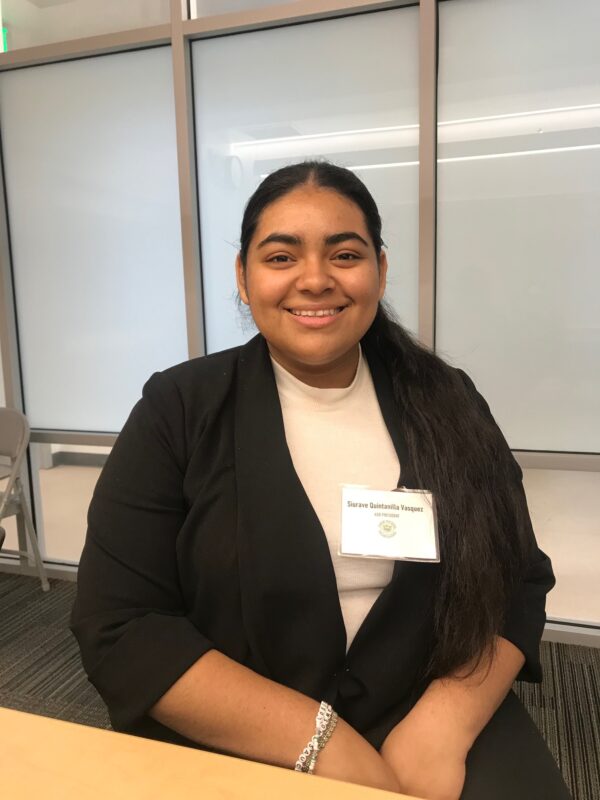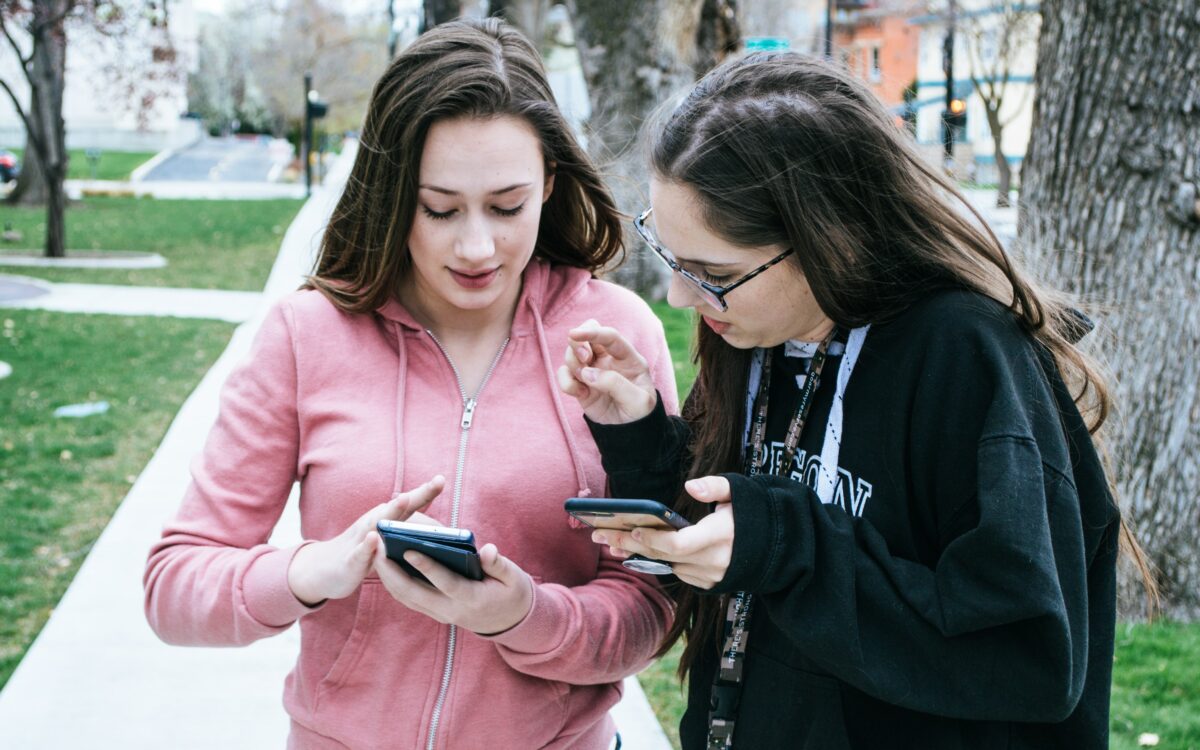Researchers, legislators, therapists, and concerned parents for years have been voicing alarm about the effects of social media on teenage girls. But how do girls themselves feel about social media? It’s mostly thumbs up.
More than 80% of adolescent girls surveyed by Common Sense Media said that social media has a positive or neutral impact on themselves and their peers, according to a report the Bay Area-based nonprofit released today.
A majority said it connects them with friends, helps them find community and exposes them to positive messages about racial and sexual identity. It even helps them find mental health resources and information.
“It’s very encouraging from a policy standpoint,” said Supreet Mann, director of research at Common Sense Media, which evaluates the effectiveness of educational technologies. “While some features of social media can have negative impacts, there are a lot of positive outcomes, as well. It’s not universally bad.”
Researchers surveyed 1,400 girls ages 11 to 15 about their social media habits and their perceptions of various platforms and features. The girls represented a mix of races, incomes, and sexual and gender identities.
While the majority said they like social media in general, there were significant differences between platforms and features. YouTube and message apps like WhatsApp had far more positive effects than TikTok and Instagram, for example.
And while features such as location sharing and appearance filters had negative impacts, video sharing and private messaging were overwhelmingly positive or neutral.
Siurave Quintanilla Vasquez, a senior at Fremont High in Oakland, said she once struggled with social media, spending too much time scrolling and even developing an eating disorder due to the endless photos of “perfect” girls — slim, beautiful, usually white.

“I was none of those things. I was chubby, I had acne, I’m of color. It was hard on my mental health. I started going on severe diets,” she said. “It definitely wasn’t healthy.”
But also on social media, she found a hotline for eating disorders that helped her develop healthier eating habits. And she found countless messages about positive body image and identity that she credits with improving her self-esteem.
Now, she limits her social media use to 10 minutes sporadically, and she’s careful what she clicks on. Because of this, her algorithms serve a stream of positive messages, she said. She’s also used it to find friends and roommates at UCLA, where she’ll enroll as a freshman this fall.
“My advice to other girls is, not everything you see on social media is real or helpful,” she said. “But you can control what you see.”
Not all girls in the Common Sense Media survey had a positive opinion of social media. Some who were already struggling with depression or anxiety said social media sometimes makes them feel worse about themselves, although the results were mixed. Many girls, both those who were experiencing depression and those who weren’t, said that quitting social media wouldn’t make any difference or would even have a harmful effect overall.
Many girls also said they spend more time on social media than they want, with almost half saying they felt addicted to TikTok. On average, girls said they spent more than 2.5 hours a day scrolling through TikTok but less time on other platforms.
Also concerning, a majority said they’d been contacted by strangers on Instagram and Snapchat, which may be one reason many girls said they don’t like location-sharing features, Mann said. They also had a negative view of public accounts, where users comment or post pictures viewable by everyone.
The Common Sense Media findings come amid renewed focus on youth mental health in the wake of the pandemic. Rates of depression and anxiety have been surging among young people, with research often pinning the blame partly on social media. A February report by the federal Centers for Disease Control and Prevention found that nearly 3 in 5 teenage girls said they felt persistently sad and hopeless in 2021, double the rate among boys, with 16% saying they had been bullied on social media.
Legislators have responded with a slew of bills aimed at holding social media companies accountable for their impact on young people’s mental health. Senate Bill 287, introduced last week by state Sen. Nancy Skinner, D-Berkeley, would address algorithms and other features that lead to social media addiction among young people, levying fines of up to $250,000 per violation.
Last year, Gov. Gavin Newsom signed AB 587, which requires social media companies to post their policies on hate speech, disinformation, harassment, and extremism on their platforms and report how they enforce these policies.
Nationally, the U.S. Senate held hearings in February on the proposed bipartisan Kids Online Safety Act, which would address advertising targeted at young people and take other steps to protect young people on social media.
During those hearings, Mitch Prinstein, chief science officer of the American Psychological Association, sounded dire warnings about the harmful effects of social media on young people’s brain development and mental health. In particular, he said it can exacerbate loneliness, lead to unhealthy body image, “digital stress,” and addiction.
But he also mentioned some positive impacts, especially for young people who feel marginalized due to race, ethnicity, sexual orientation, or gender identity.
“Perhaps most notably, psychological research suggests that young people form and maintain friendships online,” Prinstein said. “These relationships often afford opportunities to interact with a more diverse peer group than offline, and the relationships are close and meaningful and provide important support to youth in times of stress.”
Onome Ituah, a senior at Long Beach Polytechnic High School in Long Beach, has been on social media since she was young and has learned how to manage it. She puts her phone down when she’s had enough, and she limits whom she follows.
But give it up? Never. For her, social media is an indispensable way to communicate with friends and family, far and near, and express herself creatively.
“It’s what you make it,” she said. “Curbing it is not the way to go because you’re limiting youth access. It’s how we communicate. It’s how we get news. It’s how we express ourselves.”
